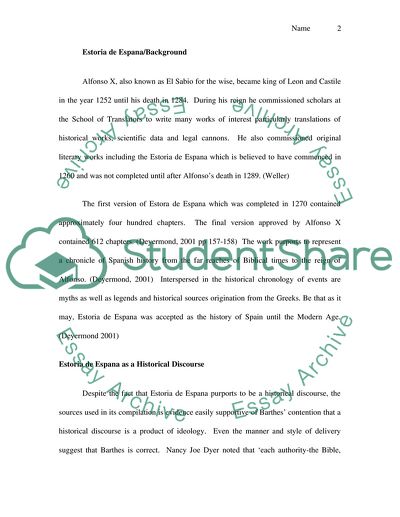Cite this document
(Estoria de Espana and the Ideology of Historical Discourse Case Study, n.d.)
Estoria de Espana and the Ideology of Historical Discourse Case Study. Retrieved from https://studentshare.org/history/1539154-estoria-de-espana
Estoria de Espana and the Ideology of Historical Discourse Case Study. Retrieved from https://studentshare.org/history/1539154-estoria-de-espana
(Estoria De Espana and the Ideology of Historical Discourse Case Study)
Estoria De Espana and the Ideology of Historical Discourse Case Study. https://studentshare.org/history/1539154-estoria-de-espana.
Estoria De Espana and the Ideology of Historical Discourse Case Study. https://studentshare.org/history/1539154-estoria-de-espana.
“Estoria De Espana and the Ideology of Historical Discourse Case Study”. https://studentshare.org/history/1539154-estoria-de-espana.


